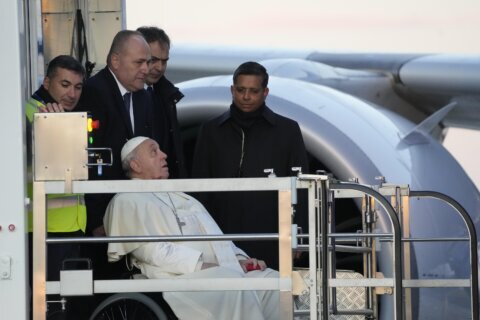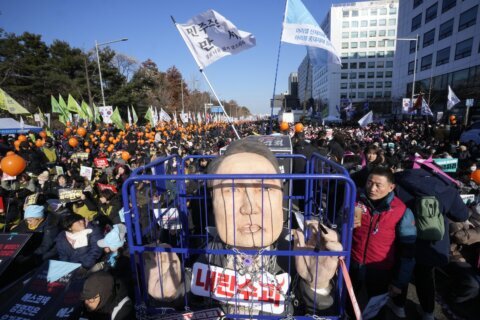MEXICO CITY (AP) — Mexico’s Catholic leaders said Monday that the judicial reform pushed by President Andrés Manuel López Obrador might not necessarily bring justice for victims of the crime wave that is rampant across the country.
“The proposal promoted by the Executive does not respond to a comprehensive review of the judicial system nor does it guarantee a better and more qualified administration of justice,” said Archbishop Gustavo Rodríguez in a video released by the Catholic bishops conference of Mexico.
López Obrador, who has clashed repeatedly with judges throughout his six-year term, has claimed that the judges in the current court system are corrupt. The governing party’s proposal would make the country’s entire judicial branch — around 7,000 judges — stand for election.
The proposal has fueled a wave of protests and drawn extensive criticism from analysts, judges and international observers. Some of the critics contend that it would compromise the independence of the judiciary and the system of checks and balances.
U.S. Ambassador Ken Salazar warned on Aug. 22 that electing judges is a “risk” for Mexico’s democracy and “threatens the historic commercial relationship” between the two countries. The proposal has also sparked nervousness among investors, while the Mexican peso has plunged.
The lower house of Mexico’s Congress passed the legislation on Sept. 4. It then moved to the Senate, where it is expected to pass by a razor-thin margin.
Bishop Ramón Castro, secretary of the bishops conference, said Monday that Catholic faith leaders are praying for the senators to reflect on the responsibility that’s been laid on them.
“May they contemplate the benefit of the nation beyond unnecessary partisanship, so we can move towards a comprehensive reform that includes prosecutors’ offices, local courts and respect for the judicial career,” Castro said.
This is not the first time that Catholic leaders have voiced their concerns over Lopez Obrador’s decisions and policies.
The church spoke out in 2022, when the murder of two Jesuits priests shook the public opinion and the Catholic hierarchy. Calls for peace have been followed by nationwide meetings to search for solutions to achieve justice and security.
During his address Monday, Castro sent a reminder to Claudia Sheinbaum, who will succeed López Obrador on Oct. 1. As a candidate, Sheinbaum hesitantly signed a peace commitment with the Catholic Church ahead of the June presidential elections.
“The national agenda for peace, presented to those seeking the presidency in the last electoral process, expresses the need of a comprehensive reconstruction of justice at all levels,” Castro said. “It’s a request from Mexico’s society, especially from victims of widespread criminal violence throughout the country.”
Various faith leaders have supported violence victims — both Mexican citizens and migrants — in recent years.
While bishops of Guerrero, one of the most violent states in Mexico, negotiated with criminal groups in an attempt to stop the wave of violence that afflicts its population, several priests have supported relatives of disappeared people.
On Aug. 30, after nationwide protests demanded justice and the safe return of 150,000 people who vanished under unclear circumstances, Catholic Bishop Javier Acero joined a group of mothers searching for their disappeared children during a news conference at Our Lady of Guadalupe’s Basilica in Mexico City.
Many of these mothers, he said, have tried to approach government officials, but the doors have remained closed for them. Now, with Sheinbaum soon to be in power, he hoped for a change and sent a message to her: “I ask this on their behalf: As a mother, listen to these moms.”
____
Associated Press religion coverage receives support through the AP’s collaboration with The Conversation US, with funding from Lilly Endowment Inc. The AP is solely responsible for this content.
Copyright © 2024 The Associated Press. All rights reserved. This material may not be published, broadcast, written or redistributed.







